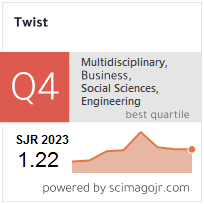A Double-Edged Sword:Examining the Link between Students’ Dependence on Artificial Intelligence (AI) and their Psychosocial Maturity
Keywords:
AI dependence, Psychosocial maturity, Emotional regulation, Social responsibility, Independence, Descriptive-correlationalAbstract
This study aims to explore the relationship between students' dependence on artificial intelligence (AI) tools and their psychosocial maturity, focusing on emotional regulation, social responsibility, and independence/self-determination. A descriptive-correlational design was employed, using self-report questionnaires to collect data from 276 undergraduate students at South Cotabato State College. The descriptive part examined how students rely on AI, while the correlational component analyzed the relationship between AI dependence and psychosocial maturity using Pearson's correlation coefficient. The study found a very weak negative correlation between AI dependence and psychosocial maturity, with a Pearson correlation coefficient of -0.045 and a p-value of 0.452, indicating no statistically significant relationship. The primary limitation is the single-institution sample, which may limit the generalizability of the findings. This study contributes to the understanding of AI's role in education, showing that AI dependence does not significantly impact psychosocial maturity. The findings guide educators on integrating AI without compromising critical psychosocial development.
Downloads
Downloads
Published
Issue
Section
License
Copyright (c) 2024 TWIST

This work is licensed under a Creative Commons Attribution-NonCommercial-ShareAlike 4.0 International License.











